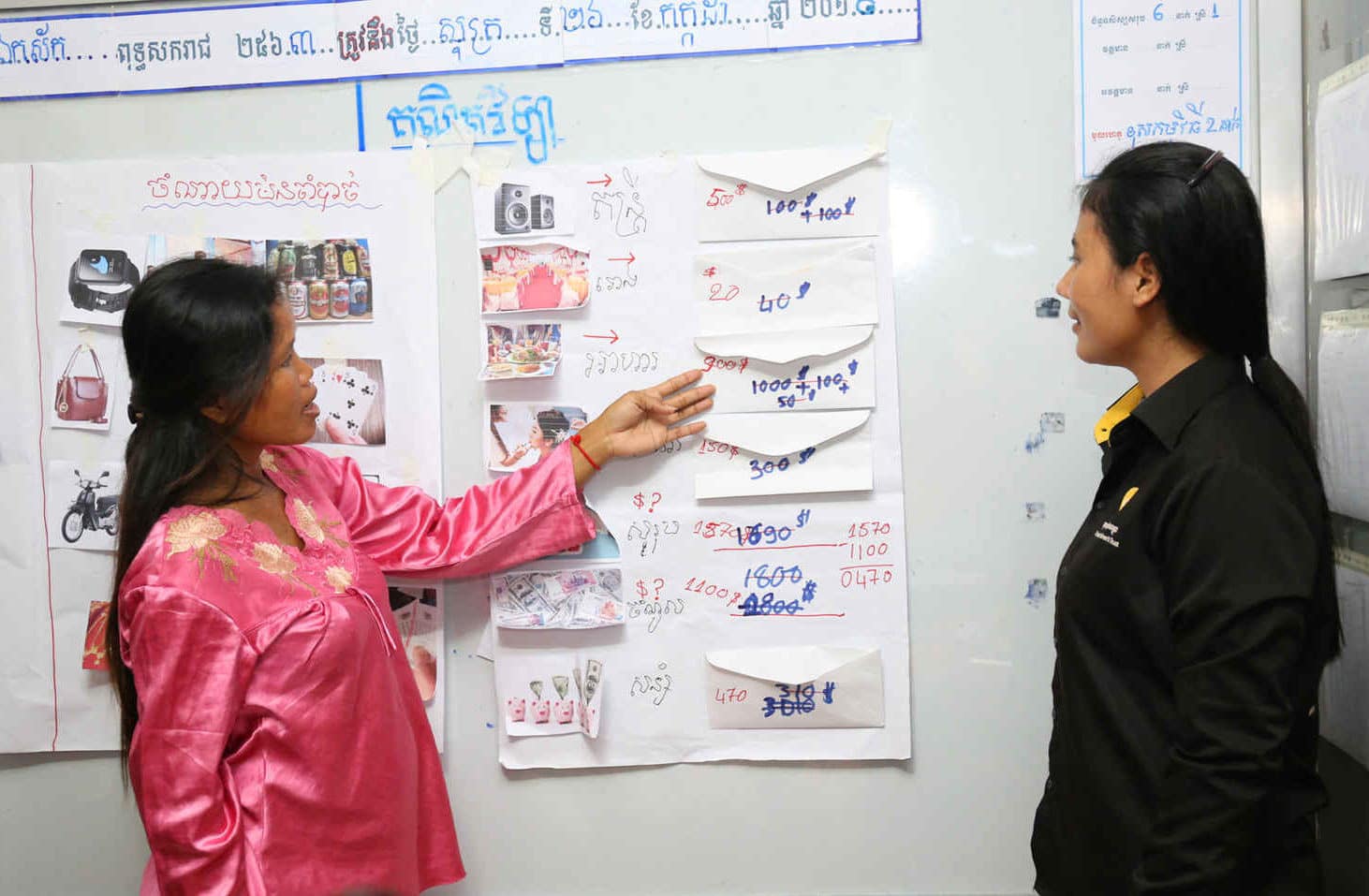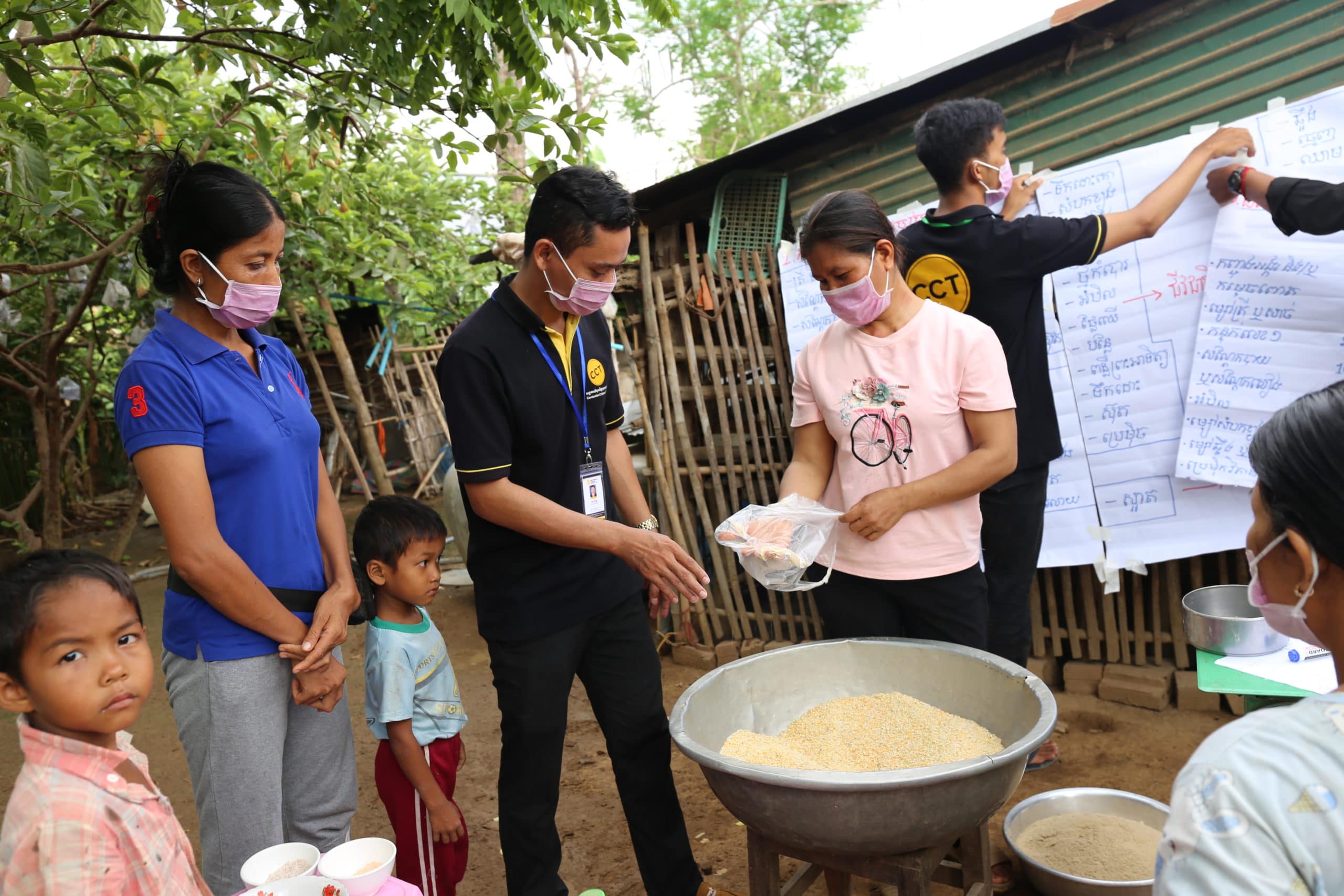Vulnerable children in Cambodia are often separated from their families and placed in orphanages because of poverty. Families resort to orphanages in the hope that it will help their children access their basic needs, like nutrition, healthcare and education. However, there is a better way to ensure children have access to all of their basic needs and grow up in their own families.
Untangling the complex web of issues that keep families trapped in the cycle of poverty requires a holistic approach, which is at the centre of Cambodian Children’s Trust’s (CCT) unique Village Hive model.
One of the holistic services delivered through CCT’s Village Hive model is a Family Finance Program – an initiative that partners with families and empowers them to take control of their own lives and ultimately achieve financial freedom.
In the 1990s, microfinance was heralded as the “silver bullet” to poverty. We now know that microfinance is not lifting the majority of families out of poverty (or even sustainably raising their incomes).
Ten years ago, CCT was helping families establish their own small businesses in the hope that generating more income would help them find their own way out of poverty and be able to provide for their children. Initially, a lot of these small family businesses were a great success, but within the first year almost every single one of them ended up failing. Families were back at square one, sometimes in more debt than they started with and requiring financial assistance from CCT to provide for their children’s basic needs.
In 2010, CCT was still in its infancy. It was the lessons learnt from these early failings that has led to the creation of our Family Finance program, which differs from microfinance initiatives in two important ways:

Without a solid foundation of financial literacy, small family businesses are destined to fail. Studies have shown the more financially literate and educated people are, the greater their capacity to save money. In fact, financial literacy has been identified as one of the driving factors behind lifting women out of poverty.
CCT’s Family Finance officers begin financial literacy coaching with a focus on mindset change. This coaching is based on the psychological phenomenon of the scarcity mindset. When you have scarcity it creates a mindset that leads to certain behaviours which, in the short term, help you manage scarcity but in the long term, only make matters worse.
Families are coached on topics like budgeting, making smart purchases, managing expenses, avoiding and solving debt, savings planning and goal setting. This coaching teaches families how to look beyond their immediate needs and desires and empowers them to build their own self-sustaining and sustainable futures. Many families are able to increase their net income simply through reducing their expenses.
When financial literacy coaching is provided alongside income generation initiatives, families have the knowledge and skillset required to build robust businesses and generate a secure and stable income.
Many of the families CCT work with are led by women who are solely responsible for their family’s finances.
Savern is one of the most successful business owners in her village. After helping Savern‘s daughter access life-changing healthcare, CCT’s family finance team began coaching her in financial literacy and helped her identify her own financial goals. CCT and Savern worked together to establish a small vegetable farm on her property.
Since then, Savern has gone from strength to strength and has expanded her business to include raising chickens. Savern’s farm is so successful that she will soon begin running financial literacy workshops for other families in her village.
With the right support, families have remarkable capacities to help themselves. Three years ago, CCT assisted single mum Sarin to bring her children home from an orphanage. Through financial literacy coaching, she now runs a profitable small-scale farm and is almost entirely self-sufficient.
Battambang is a predominantly rural province, known as the rice bowl of Cambodia. Around 90% of Cambodia’s poorest families live in the countryside and many of the families CCT work with live in rural settings.
COVID-19 closures and shutdowns in Cambodia hit many families hard and they’ve since been unable to generate a steady income. The World Bank estimates that, when compared with pre-crisis forecasts, COVID-19 could push 71 million people into extreme poverty in 2020.
Our Family Finance program has helped communities shift from the scarcity mindset to focus on generating ideas for saving money and leveraging their existing resources to ensure food and financial security. One workshop in a village 40 minutes from Battambang’s city centre helped local woman learn how to make their own chicken feed from ingredients they already had on hand, helping to reduce their expenses so they can meet their savings goals and continue to keep their chickens healthy at the same time.

We believe that NGOs should create systemic and sustainable change.
With a holistic approach that untangles the complex web of poverty, we are now seeing small family businesses thrive and families become independent of CCT, escaping the cycle of poverty for good.
Give vulnerable families a hand up, not a hand out. You can help create self-sustaining futures. Set up a monthly donation today.